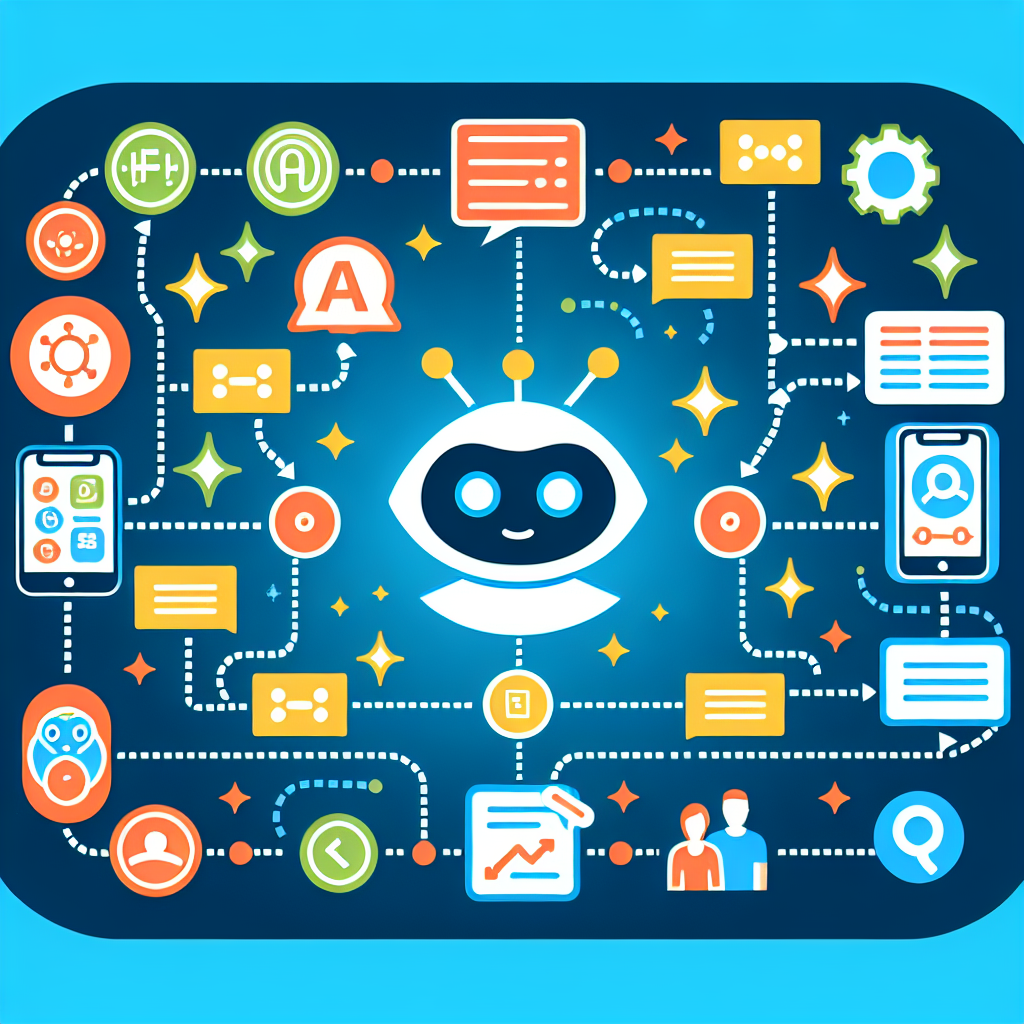In recent years, conversational AI has emerged as a powerful tool for businesses looking to enhance their customer journey. By leveraging technologies such as chatbots, virtual assistants, and voice recognition, companies can provide personalized, efficient, and round-the-clock customer service. In this article, we will explore how conversational AI is redefining the customer journey and revolutionizing the way businesses interact with their customers.
Conversational AI, also known as chatbots or virtual assistants, uses natural language processing (NLP) and machine learning algorithms to understand and respond to customer queries in real-time. These AI-powered systems can handle a wide range of customer interactions, from answering frequently asked questions to processing transactions and even providing personalized product recommendations.
One of the key benefits of conversational AI is its ability to provide instant and personalized assistance to customers. Traditional customer service channels, such as phone calls and emails, can be time-consuming and often result in long wait times. With conversational AI, customers can get the information they need quickly and efficiently, without having to navigate through complex menus or wait for a human agent to respond.
Another advantage of conversational AI is its scalability. Unlike human agents, chatbots and virtual assistants can handle multiple customer interactions simultaneously, making it possible for businesses to provide round-the-clock support without increasing their staffing costs. This scalability also allows businesses to handle spikes in customer inquiries during peak times, such as sales events or product launches, without experiencing delays or downtime.
Conversational AI also has the ability to collect and analyze valuable customer data. By tracking customer interactions with chatbots and virtual assistants, businesses can gain insights into customer preferences, behavior, and pain points. This data can be used to improve products and services, tailor marketing campaigns, and identify opportunities for upselling and cross-selling.
Furthermore, conversational AI can help businesses streamline their customer journey by providing a seamless omnichannel experience. Chatbots and virtual assistants can be integrated with various communication channels, such as websites, messaging apps, and social media platforms, allowing customers to interact with businesses wherever they are and on their preferred channel. This omnichannel approach ensures a consistent and personalized customer experience across all touchpoints, leading to higher customer satisfaction and loyalty.
In addition to enhancing the customer journey, conversational AI can also benefit businesses by reducing operational costs. By automating routine customer service tasks, such as answering frequently asked questions and processing simple transactions, businesses can free up human agents to focus on more complex and high-value interactions. This not only improves operational efficiency but also helps businesses save time and money in the long run.
As conversational AI continues to evolve, businesses are finding new and innovative ways to leverage this technology to enhance the customer journey. From personalized product recommendations to proactive customer support, the possibilities are endless. By embracing conversational AI, businesses can stay ahead of the competition, drive customer engagement, and build lasting relationships with their customers.
FAQs:
Q: What is conversational AI?
A: Conversational AI is a technology that uses natural language processing (NLP) and machine learning algorithms to understand and respond to customer queries in real-time. Chatbots and virtual assistants are examples of conversational AI systems that can interact with customers through text or voice.
Q: How can businesses benefit from conversational AI?
A: Businesses can benefit from conversational AI in several ways, including providing instant and personalized customer service, scaling their support operations, collecting and analyzing valuable customer data, streamlining the customer journey, and reducing operational costs.
Q: How does conversational AI improve the customer journey?
A: Conversational AI improves the customer journey by providing instant and personalized assistance, offering a seamless omnichannel experience, collecting valuable customer data, and reducing operational costs. This leads to higher customer satisfaction, loyalty, and engagement.
Q: What are some examples of conversational AI applications?
A: Some examples of conversational AI applications include customer service chatbots, virtual assistants for e-commerce websites, voice-activated smart speakers, and social media chatbots. These applications can handle a wide range of customer interactions, from answering inquiries to processing transactions.
Q: How can businesses get started with conversational AI?
A: Businesses can get started with conversational AI by identifying their customer service needs, selecting the right AI platform or solution, designing and developing conversational workflows, testing and optimizing the system, and integrating it with their existing communication channels. It is also important to train the AI system regularly to improve its performance and accuracy.

